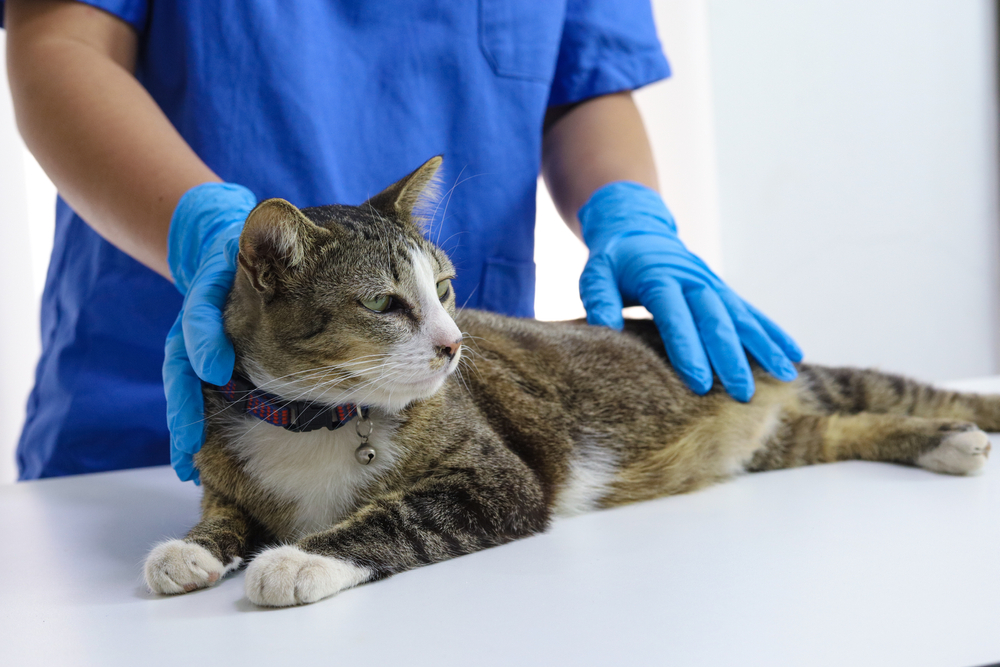
As a loving pet owner, you are the first line of defense when it comes to your pet’s health. Because our pets can’t speak to tell us what’s wrong, it’s up to us to recognize subtle changes in their behavior, appetite, or physical condition. While some symptoms may seem small, they can point to more serious health issues that require attention.
Changes in Eating or Drinking Habits
If your pet is eating less than usual, skipping meals, or drinking far more water than normal, it can signal a problem. For example, excessive thirst may indicate diabetes or kidney disease, while refusing food could mean dental pain, nausea, or another underlying condition.
Unusual Behavior or Energy Levels
Behavioral changes are often one of the first signs of illness. If your playful dog suddenly wants to sleep all day, or your affectionate cat starts hiding, it may mean they’re uncomfortable or in pain. Restlessness, pacing, or whining can also be red flags.
Digestive Issues
Upset stomachs happen, but frequent vomiting, diarrhea, or constipation shouldn’t be ignored. Persistent digestive issues can lead to dehydration or may be linked to more serious concerns such as parasites, infections, or gastrointestinal blockages.
Breathing or Coughing Problems
Heavy panting, wheezing, or coughing that doesn’t resolve quickly could be connected to respiratory infections, allergies, or heart disease. Pets struggling to catch their breath should be seen right away.
Changes in Urination
House-trained pets that suddenly have accidents, struggle to urinate, or show signs of pain in the litter box may be dealing with urinary tract infections, kidney problems, or even bladder stones. Blood in the urine is always a sign to call your veterinarian.
Skin or Coat Changes
Your pet’s skin and coat are windows into their overall health. Excessive shedding, bald patches, constant itching, or sores may signal allergies, fleas, or underlying medical issues. Even a dull coat that loses its shine can be a warning sign.
Sudden Weight Gain or Loss
Unexplained weight changes are cause for concern. Gradual weight gain may indicate thyroid issues or overeating, while sudden weight loss can be related to diabetes, cancer, or digestive problems.
Bad Breath or Dental Issues
Oral health is often overlooked, but it’s a major part of your pet’s overall wellness. Strong odors, drooling, pawing at the face, or refusing to chew can point to gum disease or infections that could spread to other organs if untreated.
Mobility and Joint Concerns
If your pet seems stiff, limps, struggles to get up, or avoids stairs and jumping, it could be more than “just getting older.” Arthritis, joint injuries, or other musculoskeletal problems can cause pain that impacts quality of life.
Eye and Ear Problems
Red, watery, or cloudy eyes, along with frequent scratching or discharge, may signal infections or vision issues. Similarly, ear infections often cause head shaking, scratching, or foul odors and should be treated promptly to prevent complications.
Preventive Care Matters
While recognizing signs of illness is important, prevention is equally vital. Routine veterinary exams, vaccinations, parasite prevention, and dental cleanings can help catch issues before they become serious. Regular check-ups also give your veterinarian a baseline to compare changes over time.
When to Contact Your Veterinarian
If you notice one or more of these symptoms, don’t wait it out. Pets often hide their discomfort until the problem has progressed. Early veterinary care can make a huge difference in treatment outcomes.
Keep Your Pet Happy and Healthy
Caring for your pet means paying close attention to their everyday habits and changes. By recognizing the early signs of illness, you can take action quickly and help your pet live a longer, healthier life. Our caring team is here to support you with comprehensive veterinary care when your pet needs it most.
Have you noticed any changes in your pet’s behavior, appetite, or energy? Schedule a wellness exam with Community Pet Outreach and let us help keep your pet happy, healthy, and thriving. Visit our office in Lewisville, Texas, or call (972) 848-8930 to book an appointment today.





